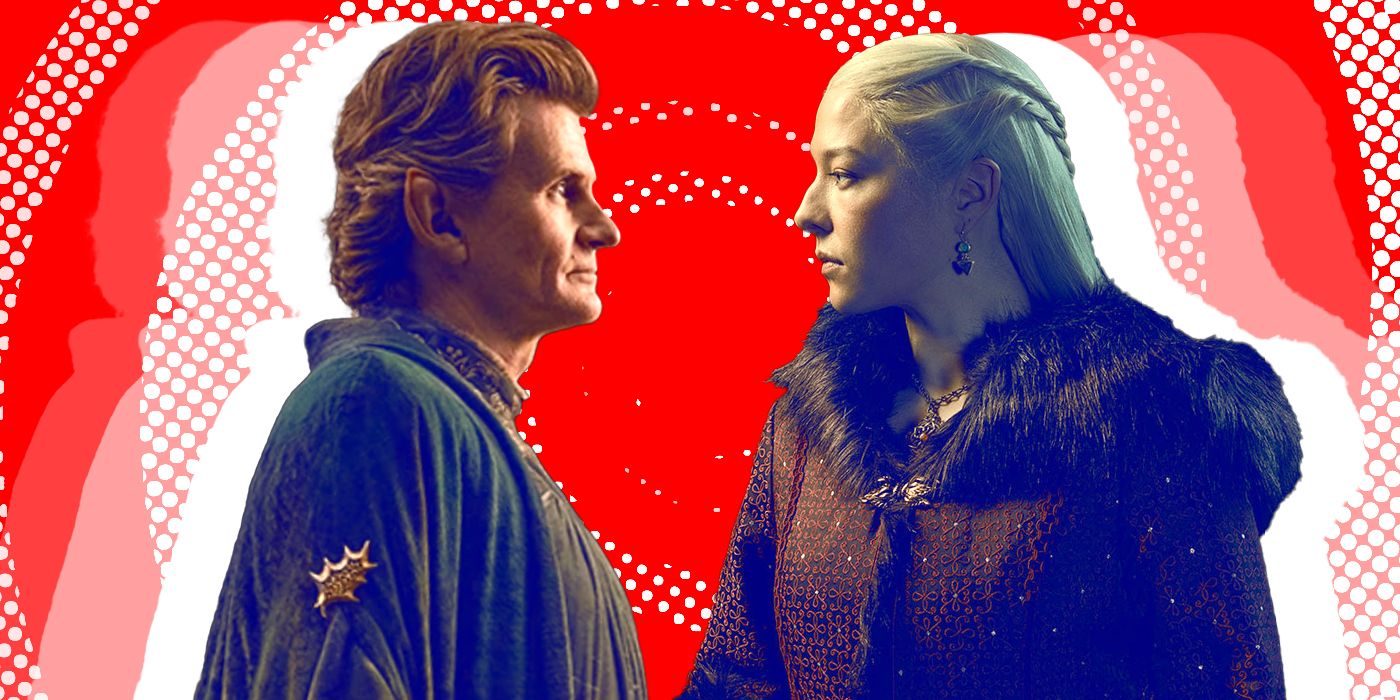
Ever since both shows premiered in 2022, both Prime Video and Max have been vying for control of their own streaming throne, attempting to dominate what has rapidly become a television landscape ruled by high fantasy series. Moreover, with both House of the Dragon and The Rings of Power premiering second seasons this year, 2024 has been no different, but the prestige assigned to each show has gradually shifted. While House of the Dragon’s overall approval ratings still outpace The Rings of Power’s lukewarm response among fans, audiences’ return to Westeros was plagued by poor pacing and a plot so messy it drew criticism from author George R.R. Martin. On the other hand, The Rings of Power Season 2 does what House of the Dragon couldn’t — it delivers an exhilarating continuation of the story established by its first season.
‘The Rings of Power’ Season 2 Delivers on Its First Season’s Narrative Momentum
In both cases, The Rings of Power and House of the Dragon end their first seasons with a major escalation of narrative stakes. In the latter, the death of Lucerys Velaryon (Elliot Grihault) drives Rhaenyra Targaryen (Emma D’Arcy) to glower directly at the audience in a hint of her malice to come, while The Rings of Power‘s revelation of Sauron (Charlie Vickers) in Season 1, Episode 8 casts a growing shadow over Galadriel (Morfydd Clark) and the rest of Middle-Earth. Where the shows differ, however, lies in how they respond to their own dramatic developments. House of the Dragon Season 2 ultimately backs down from its primary conflict, while The Rings of Power embraces the second coming of Sauron to deliver a satisfying Sophomore season.
The most frustrating part of watching House of the Dragon Season 2 is persistently waiting for battles and confrontations that never seem to come, with Rhaenyra spending the season’s first few episodes still trying to make peace with Alicent (Olivia Cooke) instead of embracing the rage audiences were seemingly promised. The Rings of Power, however, doesn’t back down from its premise, and Season 2 gives us all the delicious deceptions of Sauron’s fair form, Annatar, while also treating fans to plenty of fight scenes involving the Ents and Barrow-wights before culminating in the epic sack of Eregion. As a result, the Tolkien adaptation gradually becomes more enthralling as it approaches an equally rewarding finale, while House of the Dragon‘s Season 2 finale peters out by concluding with the same promise of future conflict that concluded Season 1.
‘The Rings of Power’ Season 2 Balances Its World-Building More Successfully Than ‘House of the Dragon’
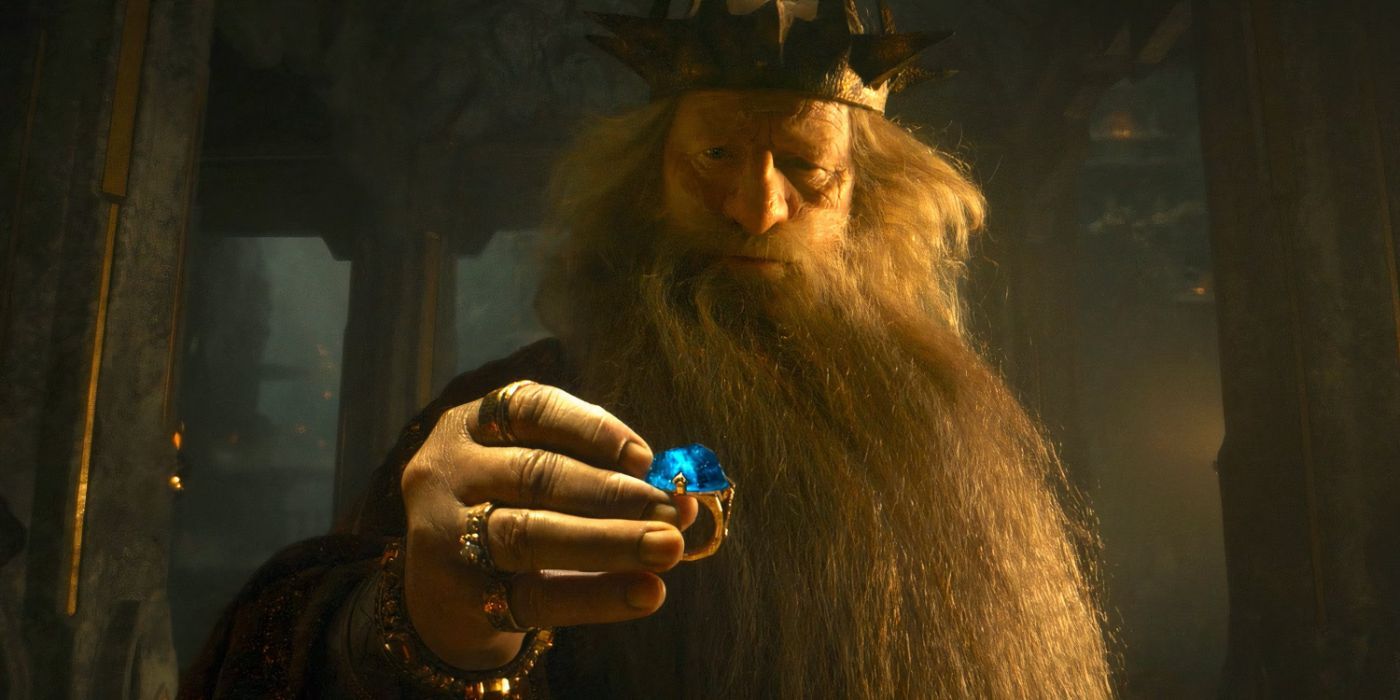
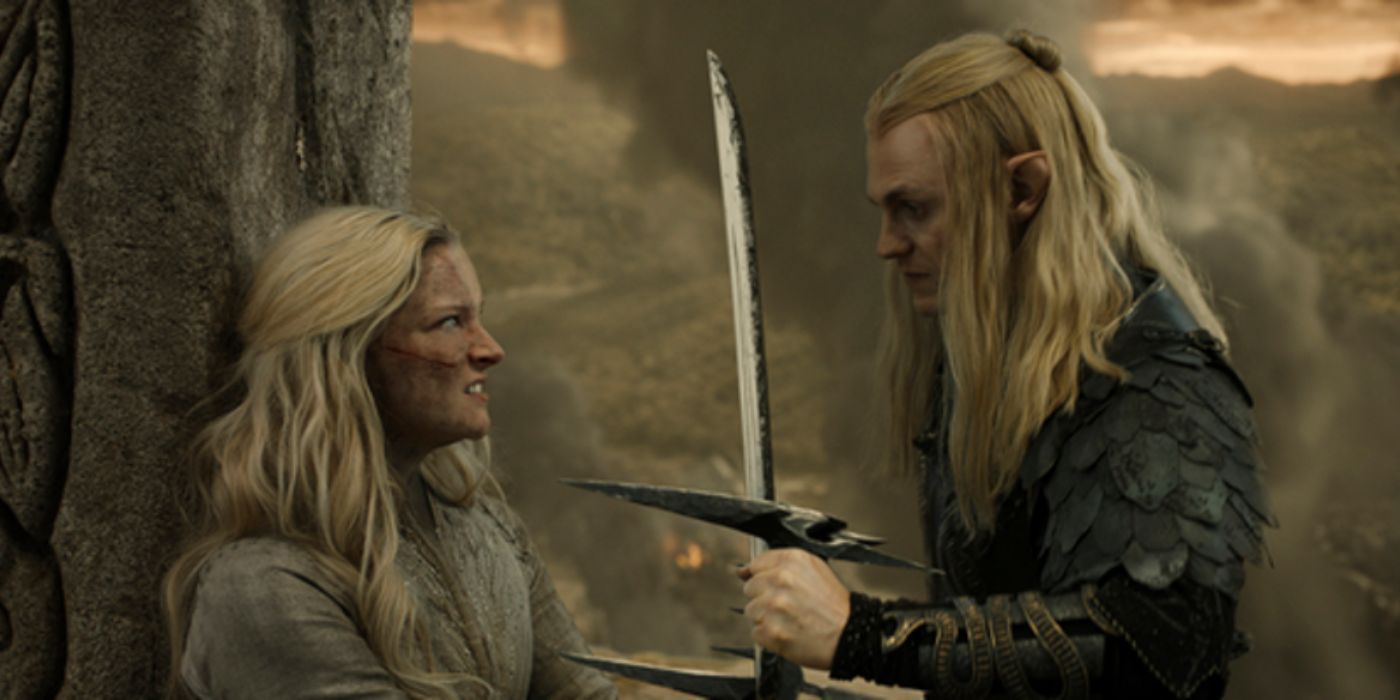
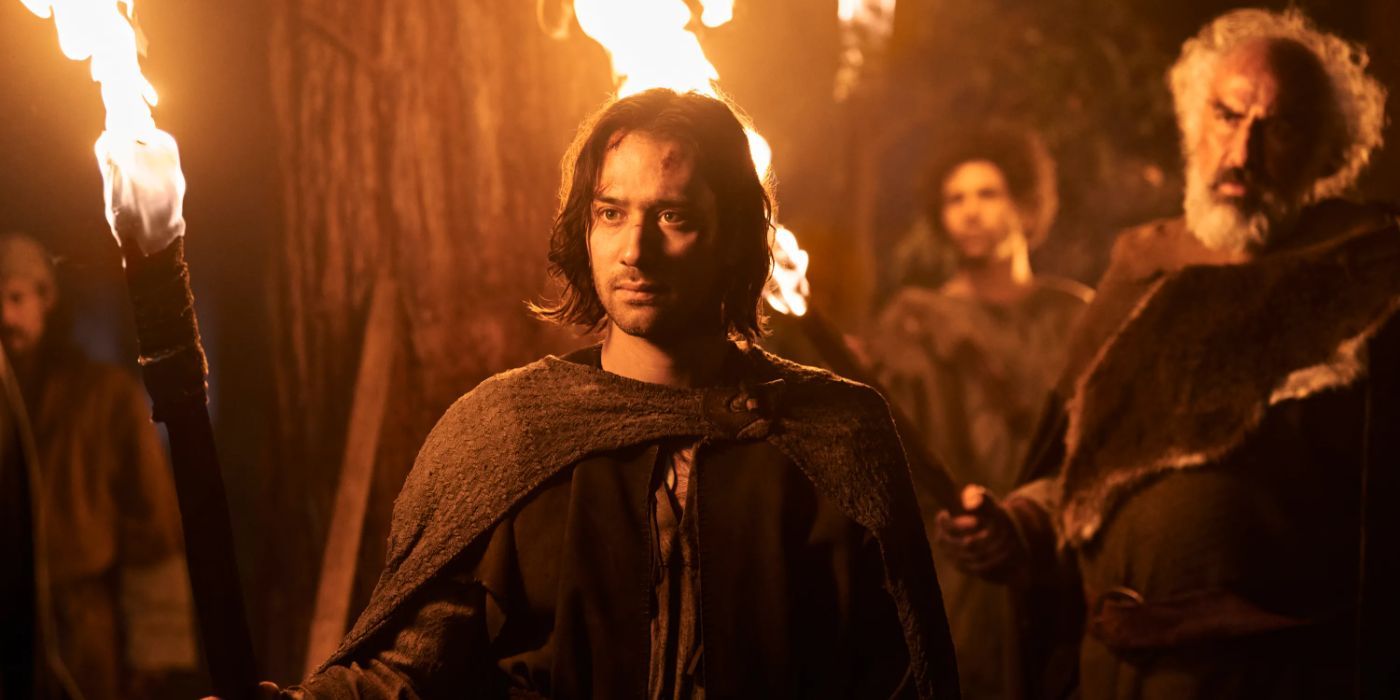
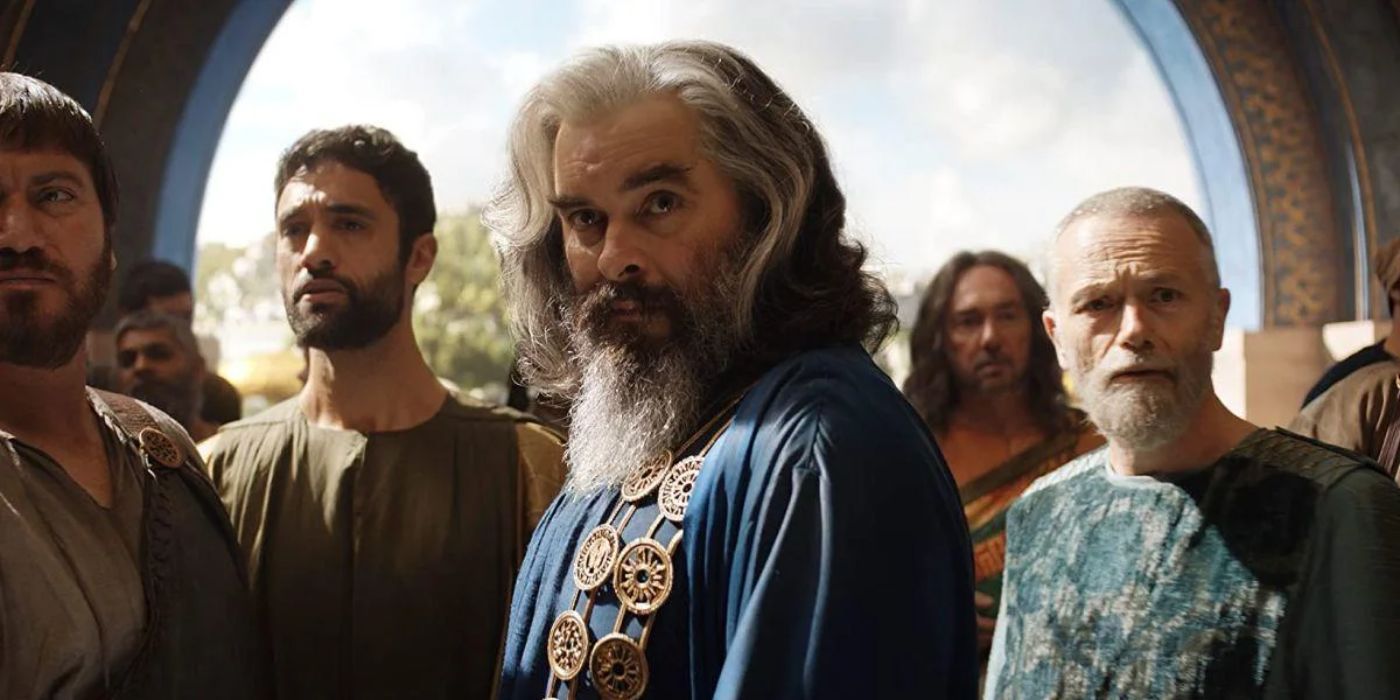
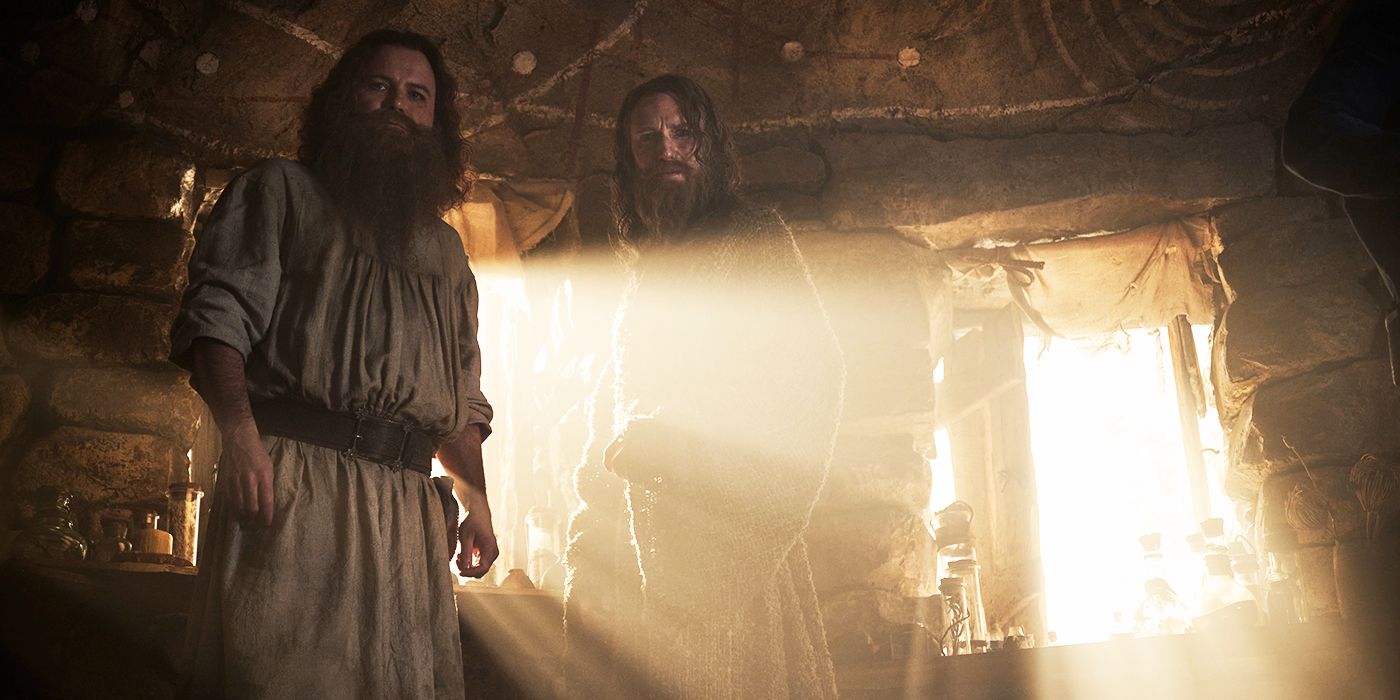





Aside from picking up where its first season left off, The Rings of Power Season 2 also handles its expansive setting more successfully than House of the Dragon. As adaptations of intricate fantasy worlds, both shows have their work cut out for them in representing both the broad realms of Middle-Earth and the kingdoms of Westeros and Essos, but The Rings of Power Season 2 better captures the scope of Tolkien’s work through its interesting subplots. Arondir (Ismael Cruz Córdova) and Isildur’s (Maxim Baldry) misadventures in Pelargir complement the corruption of Númenor to showcase deep cuts into Tolkien lore that move both stories forward, while Daemon’s (Matt Smith) sluggish stay at Harrenhal and Rhaena’s (Phoebe Campbell) time in the Vale grind House of the Dragon Season 2 to a restless halt.
The Rings of Power is, of course, not without its shortcomings this season either, and some of its subplots have begun to feel tedious. In particular, it feels right to question the role of The Rings of Power‘s Harfoots after their travels through Rhûn slowed down an otherwise breakneck season, but the Stranger’s (Daniel Weyman) interactions with Roy Kinnear’s delightful Tom Bombadil still imbue The Rings of Power Season 2 with much-needed levity and musical magic. As a whole, the season is a breath of fresh and bloody air compared to House of the Dragon, packing the tragedy of Celebrimbor (Charles Edwards) and the thrilling return of Sauron into its own eight-episode run to produce a follow-up to truly rule them all.
The Lord of the Rings: The Rings of Power Season 2 is available to stream on Prime Video in the U.S.
News
Joe Locke Discusses Tommy’s Possible Return in ‘Agatha All Along’
This week’s episode of Agatha All Along finally shed light on Billy’s motives and why he sought out Agatha in the first place. It turns out Billy had some awareness of his true origins all along and was cleverly manipulating Agatha, though she would…
Hugh Jackman’s Brown & Tan $100K Wolverine Suit Looks Cheap Compared to the Shocking Price of Shazam’s Costume!
Producing superhero movies involves significant expenses, largely due to CGI, action sequences, and, surprisingly, the costumes. Striking a balance between functionality, comic accuracy, and realism, superhero suits have evolved considerably from their early designs. We recently talked about this, and…
Joe Locke Would Like to Team Up with Ms. Marvel in a Potential ‘Young Avengers’ Project
After the most recent revelations in Agatha All Along, Joe Locke, now confirmed to be Wiccan (as we correctly predicted), is once again in the spotlight. Of course, we are duty-bound to report on the latest news related to both the character and the…
Jenna Ortega Could Join the Marvel Cinematic Universe
Hollywood’s rising star Jenna Ortega, known for her roles in the Scream revival, Netflix’s Wednesday, and the recent Beetlejuice sequel, is now catching the eye of Marvel Studios. Reports from MTTSH indicate that she’s currently in discussions for a role within the Marvel Cinematic Universe, although…
Exciting Twist in Fan Theory: ‘Agatha All Along’ Showrunner Confirms Deleted Scene with Alice Wu
Agatha All Along is the newest addition to the MCU, exploring the magical and supernatural aspects of the cinematic universe that were only lightly addressed in earlier projects. The series introduces a host of new characters and mysteries, including Alice Wu, a…
Marvel Cancels Its Only TV Show with Perfect 100% RT Score
Marvel Studios, known for its reluctance to officially cancel shows, opting instead for the ‘limited series’ tag, appears to have made a rare move. A beloved series praised for its engaging storytelling and critical acclaim, confirmed through storyboard artist Gabi…
End of content
No more pages to load











